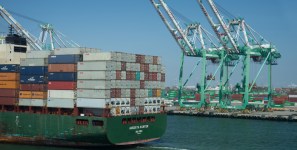The Future of Autonomous Shipping: From Coastal Routes to Urban Logistics
The concept of crewless ships navigating coastlines, inland waterways, and even the high seas is no longer confined to science fiction. At a recent CONNECTING PORTS talk show hosted by HPC Hamburg Port Consulting (HPC), experts gathered to discuss the emerging reality of autonomous shipping, highlighting how this technology is gradually becoming part of modern logistics.
Read also: Eventual Autonomous Shipping Faces Considerable Hurdles
Moderated by Christina Prieser, Associate Partner at HPC, the forum featured insights from three industry leaders: Ørnulf Jan Rødseth, General Manager of the Norwegian Forum for Autonomous Ships (NFAS); Marc Holstein, Head of the Remote Operation Center at SEAFAR in Antwerp; and Antoon van Collie, CEO of ZULU Associates.
Rødseth shared Norway’s pioneering steps in semi-autonomous shipping, including the world’s first semi-autonomous container ship, which has been transporting goods since spring 2022. This vessel operates with minimal crew and is remotely controlled, showcasing the practical application of autonomous technology in coastal services.
Holstein highlighted the deployment of SEAFAR’s technology on over forty vessels, primarily in inland shipping. He emphasized the seamless integration of crew-reduced and remotely controlled ships into existing infrastructure, particularly in Belgium. Meanwhile, van Collie discussed France’s progress in allowing autonomous ships in its waters, with plans to operate unmanned vessels by next year.
The discussion also touched on the potential for autonomous vessels in urban logistics. In cities like New York and Paris, small autonomous ships are already being used to transport goods, with some vessels even powered by hydrogen. Van Collie sees this model expanding to other cities, such as Hamburg and Berlin.
Looking ahead, Norway’s ASKO plans to replace road transport with two battery-powered, semi-autonomous ro-ro ships by 2026, reducing road traffic and infrastructure needs. The experts agreed that remote control increases operational safety, with shorter, more manageable shifts for captains onshore compared to traditional seafaring roles.
As the possibilities for autonomous shipping continue to take shape, it is clear that this technology is set to revolutionize the logistics and transportation industries, offering safer, more efficient, and environmentally friendly solutions.
The full session Connecting Ports #08 is available on YouTube Connecting Ports | Session #8 | Navigating Next: The Path to Autonomous Maritime Transport (youtube.com)
The next session of Connecting Ports will take place on 5 September 2024. It will focus on an urgent industry topic: cybersecurity challenges in ports. Secure your seats now, as registration is still open: Connecting Ports – HPC Hamburg Port Consulting GmbH





Leave a Reply